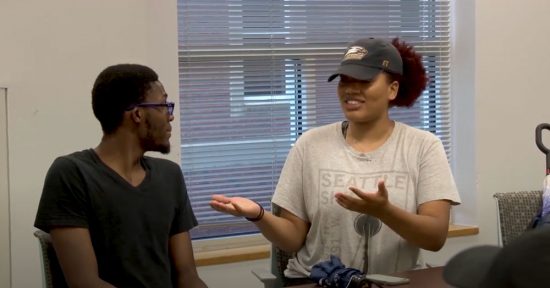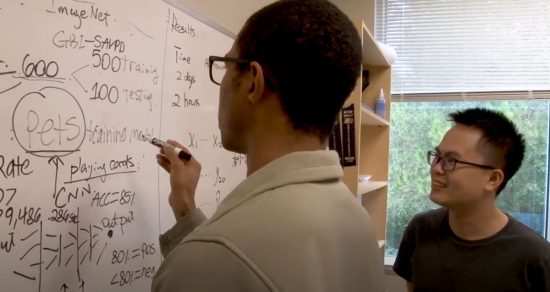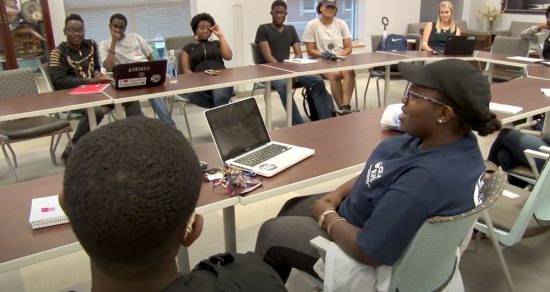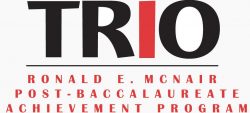
The McNair Scholars Program
What is the McNair Scholars Program?
The McNair Scholars Program at Georgia Southern University is a TRiO program that prepares underrepresented, high-performing students for graduate school. Funded by the U.S. Department of Education, the McNair Scholars Program seeks to increase the number of first-generation, low-income, and/or underrepresented students in Ph.D. programs, and ultimately, diversify the faculty in colleges and universities across the country.
Our program is open to sophomores, juniors, and seniors from any academic major on every Georgia Southern campus.
McNair Scholars Program Benefits
By fostering mentoring relationships, promoting undergraduate research, assisting with GRE preparation, and enabling students to attend and present at conferences, we aim to produce highly competitive graduate school applicants who have the skills and experiences necessary to succeed in their graduate programs and earn a Ph.D.
- McNair Scholar Stipend: Scholars receive an educational incentive of $2,800, along with room and board during the McNair Summer Research Experience.
- Academic Development: McNair Scholars receive individual academic counseling from program staff and a faculty mentor in order to maximize their undergraduate program and prepare for graduate study.
- Mentoring: Scholars select a faculty mentor who provides guidance throughout the undergraduate research process and advice during the graduate school application process. Mentors serve as role models and are an essential resource for each McNair Scholar.
- Funding for Graduate School Campus Visits: Scholars may receive funding to travel to up to two graduate schools to meet with graduate faculty and to learn more about the department and institution in order to make their final graduate school decision.
- GRE Preparation: The McNair Scholars Program assists scholars with GRE prep, finding the right graduate school and funding opportunities. Mentors help scholars navigate the application process, writing their statement of purpose and create a curriculum vita.
- Supportive Scholarly, Social and Cultural Environment: Scholars engage with others through monthly seminars, group meetings and various cultural events.



McNair Scholarship Requirements
Undergraduates who meet the following criteria are eligible to apply to the McNair Scholars Program:
- U.S. citizen or permanent resident.
- Full-time student at the Georgia Southern University (Open to all majors).
- Freshman, sophomore or junior with a cumulative G.P.A. of 3.0 or above.
- I am EITHER (A) a member of a group underrepresented in graduate education (African American/Black, Hispanic, American Indian/Alaskan Native, Native Hawaiian and/or other Pacific Islander (with an affiliation with the United States), (B) a first-generation university student who also has a demonstrated need/income level established by the U.S. Department of Education, or BOTH A & B.
- Have a strong interest in obtaining a Ph.D. or other graduate degree in a field that will lead to a career in teaching, research or administration on a college or university campus. (Programs that lead to law degrees (JD), medical degrees (MD), veterinary degrees (DVM), or pharmacy degrees (PharmD) are not eligible).
Unsure of Whether You Qualify?
If you are unsure about whether you qualify, please contact our office at mcnair@georgiasouthern.edu and we can advise you.
Who is Ronald E. McNair?
Dr. Ronald McNair lived a full and accomplished life. He was a research scientist, karate expert, jazz musician — a family man who was devout in his faith. In 1984, he also became the second African American astronaut to venture into space aboard the STS-41-B Challenger mission. Tragically, on January 28, 1986, the Space Shuttle Challenger exploded after launch from the Kennedy Space Center. He was one of the seven-person crew who died.
Continue Reading About McNair

